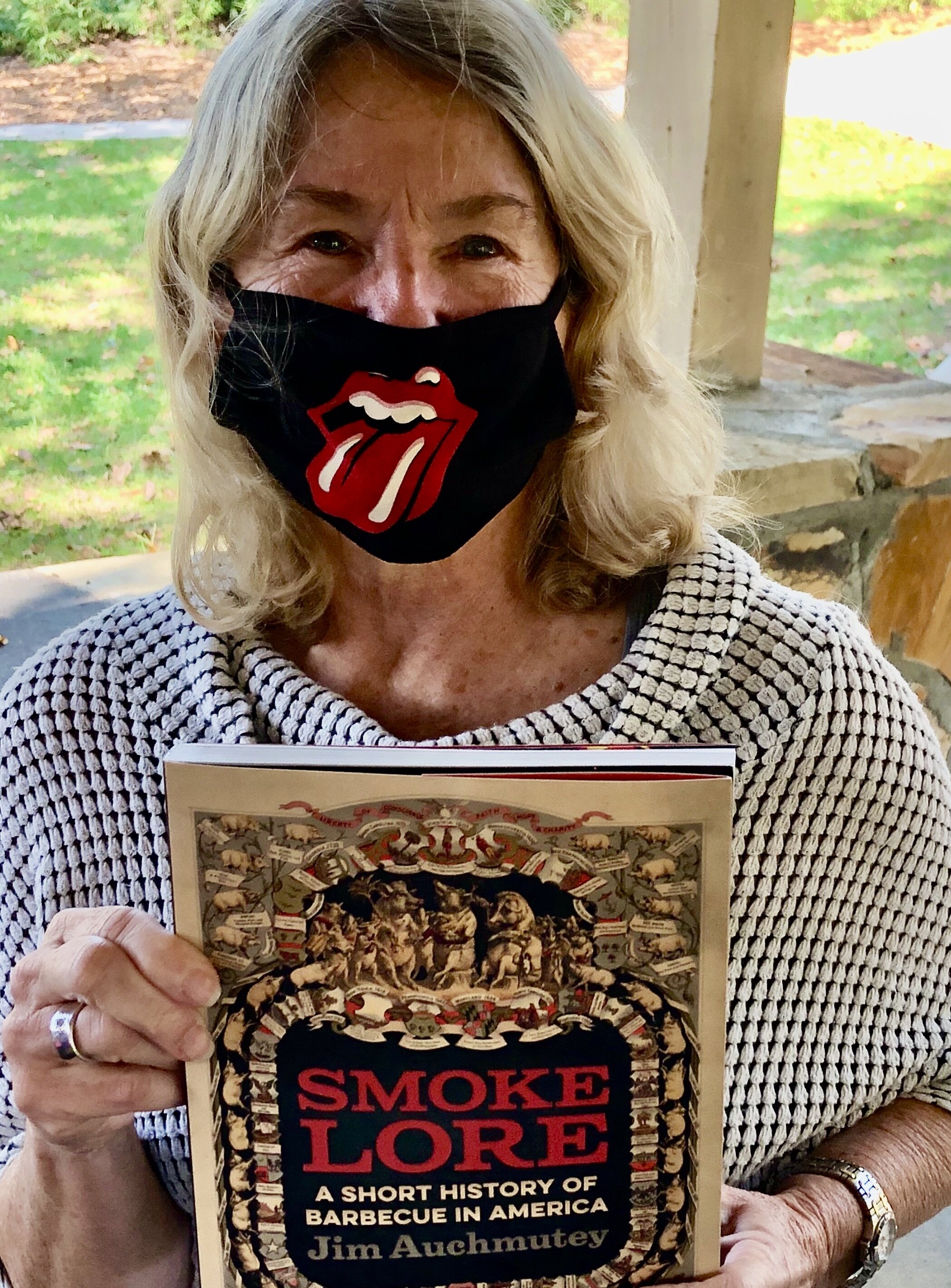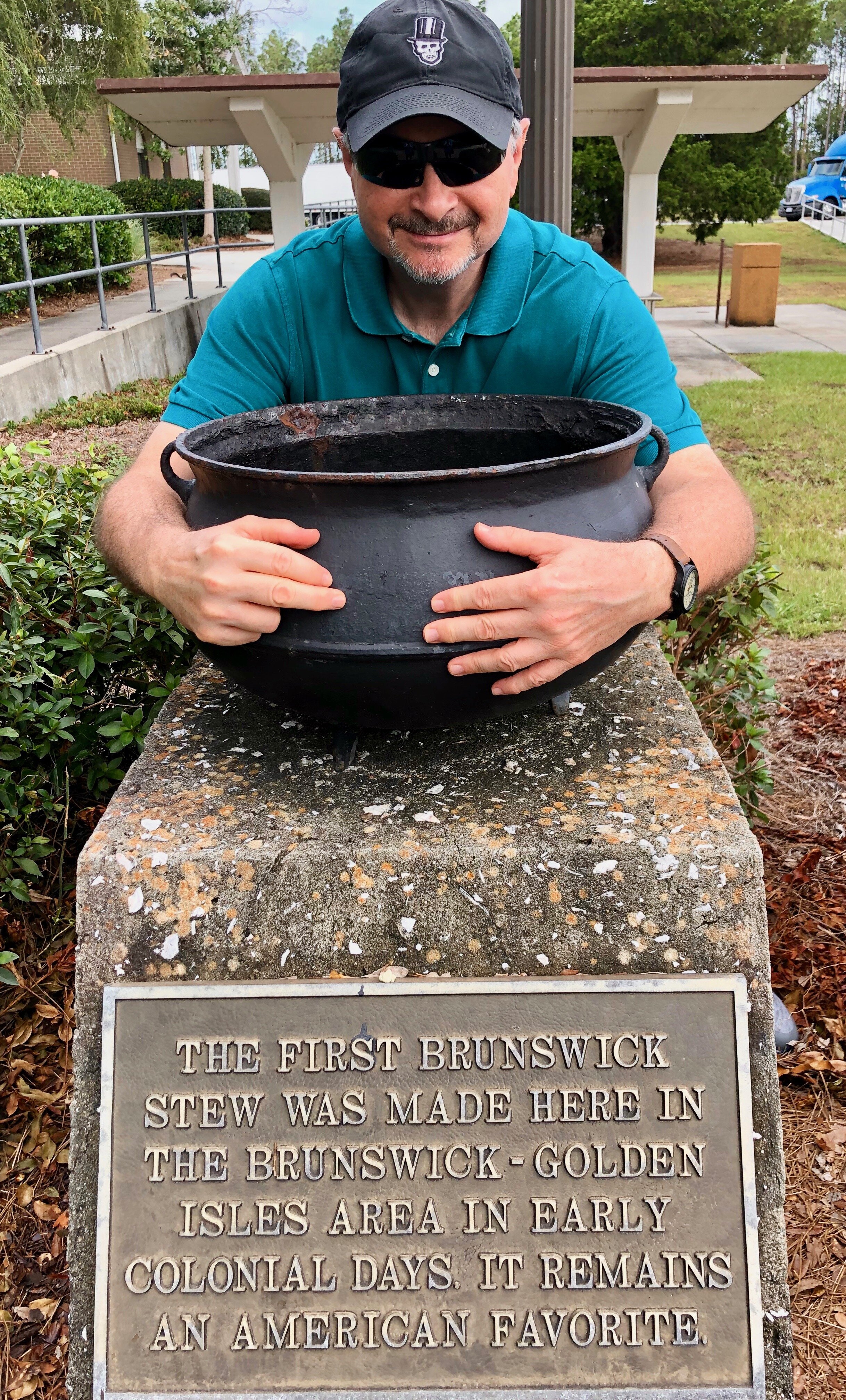I did my first socially distanced book talk this week — mask and all — and it was fun … but a little different.
I’ve done online talks during the pandemic for both of my last two books — “Smokelore: A Short History of Barbecue in America” and “The Class of ’65: A Student, a Divided Town and the Long Road to Forgiveness.” It can be strange. I remember one Zoom session where I did a version of my barbecue slide show and heard nothing but the sound of my voice for half an hour and saw nothing but my images on the screen. It got very uncomfortable. Felt like I was giving a speech in a closet.
So when Johnny and Sally Darden invited me to speak to their book club in Gainesville — in person — I was intrigued. The Dardens come from Sparta, Ga., and are neighbors of my mother’s family, the Yarbroughs. Sally assured me that the club would meet outdoors, in a park, and would take precautions against the coronavirus. Johnny is a medical doctor, a retired surgeon, so I figured they would have a proper respect for the virus.
We met under a picnic shelter in Riverside Park on the north side of Gainesville, 20 or so people well-distanced at tables and on folding chairs. Everyone wore a mask — some of them quite interesting. Wilson Golden, a politically active friend of mine from Mississippi, wore a mask that said: “Vote” (which played well with the topic of my talk: politics and barbecue). One woman sported a mask with big red lips. Another wore one with the Rolling Stones’ tongue-stuck-out logo. She asked a question after the talk. I have to admit that I couldn’t concentrate on what she was saying as I looked at that tongue and tried to suppress a laugh.
Many thanks to the Dardens and their book club friends for a pleasant experience that proved therapeutic for me. After all these months of online encounters, seeing half a face in person felt almost normal.










